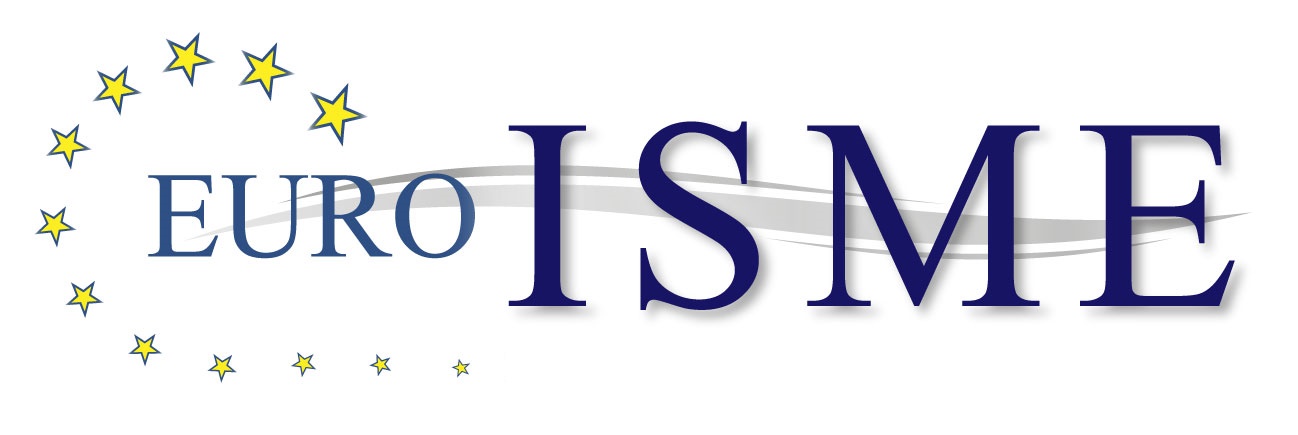An Epic of Defiance? Ukraine 2022
By Patrick Mileham, EuroISME BoD member
All warfare is experimental. This truism is too often forgotten by national leaders having in mind an emerging ‘new chapter’ in the ‘narrative’ of their country’s future place in the world. Vide the now-embattled nations in eastern Europe, with Russia’s illegal ‘claim’ rejecting the Ukrainians’ absolute sovereign rights and murderously intent on cancelling their ‘future-history’ of independence.
The war is both about physical deeds of deadly and destructive combat, but also conflict and defiance about words. We witness a weaponized retro-futuristic, ‘Russkiy Mir’ (Русский мир) fighting with a mediaeval mind-set that ‘might is right’, like a self-destructive Taras Bulba (Gogol) versus a modern-day, free world sovereign democracy. ‘Someone hath blundered’ (Tennyson) and continues to blunder four weeks into the most impossible of wars. Wars are usually lost by the side making the most mistakes. Today the world seems in reverse by at least seventy-five years.
Leo Tolstoy, most rational and radical of writers of his nation, wrote about ‘the laws of history’ (epilogues to War and Peace). What did he mean? He wrote about ‘integration’ and ‘disintegration’ of rulers and peoples. ‘History’ is both about physical human ‘events’ and the subsequent ‘factual-narrative’ which tries to prove a true connection between ‘causes’ and ‘effects’, the most substantially dynamic being – in a word – ‘epic’.
Any ‘laws of future history’ are of course, more-or-less hypothetical and, imagined events amongst the circumstances and personal and international human relationships. Russia has inverted the ‘truth’ to confuse and control its own citizens and totally lost any rational narrative. Defended cities are today being trashed and damned. Much of the wider world recognizes what it sees as truly evil. In a word, ‘chaos’.
The forthcoming 2022 EuroISME book on the Ethics of Urban-war, contains my already-written chapter ‘One damned thing after another: the battle of narratives and urban-war chaos’. I hasten to add it is common sense rather than blue-sky thinking, and I claim no special prescience of the invasion of Ukraine and the fighting in its cities. It took us all by surprise.

Original war aims can become chaotically self-defeating. Wishful-thinking ad absurdum. Plan A, the rulers of Russia’s experiment – ‘soft-power’, ‘peace-keeping’, ‘a special military operation’– failed the moment troops crossed the border. Currently plan B is bloody, terrifying, hideous and defies any reasoning of a future history that will do any good to anyone, any nation, including Russia itself.
What’s the opposite of ‘a narrative’ or ‘the Narrative’? ‘One damned thing after another’ (Arnold Toynbee) is the verdict of the historian of the rise and fall of civilizations. Beware also the ‘narrative-as-metaphor’ trap. We are not dealing with stage-plays, film-scripts or opera-scores. The verbiage of a ‘national narrative’ – warmongering, defensive or peaceable – may be more speculative and vapid than we think. We can delude ourselves of what is real and true, and what is believed but false. Who owns the truth and what is true, being upright, slanted, faked, or inverted?
‘War is the art of deceit’ (Sun Tzu) but deceiving the enemy and rendering his plans into a state of physical chaos and mental desperation demanding total surrender is not an ideal means towards an agreeable outcome (Plato). There is too-often the temptation of outright lying or being economical with the truth to military subordinates and home- populations. In sum ‘The Narrative’ of a war can only truly be written after the events, meeting the test that ‘Truth is the daughter of Time… and not of authority’ (Francis Bacon).
This brief statement is to warn against indiscriminate reliance on the term ‘narrative’. While events unfold day-by-day participants can be deceived about ‘war aims’ and ‘campaign-plans’ and, how the actual fighting is progressing towards hypothetical ‘end-states’, acceptable or unacceptable. The logical-positivistic notions in participants’ minds can be dangerous, exposed in well-known truisms, such as military ‘plans do not survive first contact with the enemy’ (Helmuth von Moltke) and that ‘plans are useless…planning indispensable (Dwight D. Eisenhower). ‘Events…events’ (Harold Macmillan). Aggressors attack, defenders defend.
‘History’ actually has no abiding ‘laws’ of its own, even if it records patterns of behaviour in the way Tolstoy suggests. If history is that of the whole of humankind – seeking ‘usages established between civilized nations, from the laws of humanity and the public conscience’ (Martens’s Clause 1899) – implicit, natural ‘laws’ determining which ‘side of history’ drives the narrative of humanity’s progress, as opposed to regress being the ‘wrong side’.
So, will truth be the victor in 2022 with a stronger story than falsehood? Sometimes, towards the hypothetical end of the fighting, fractured narratives may lead towards the mutual construction of symbolic and practical ‘golden bridges’ (Sun Tzu). However, this time bridges ‘to peace’ will be vastly more complicated than any strident narrative in the imagination of the Russian ‘authorities’ on the eve of battle in late February 2022. The conflict is now being played out in this story by so many other dramatis personae, but chiefly the Ukrainians, defiantly controlling their own now-epic narrative, with the truly courageous, just and ethical integrity of their aspirations.
Credits: Photo "War and Peace, staged in 2012, screened at the Golden Mask festival" [Cropped]. Creative Commons Attribution-Share Alike 4.0 | Wikimedia.
